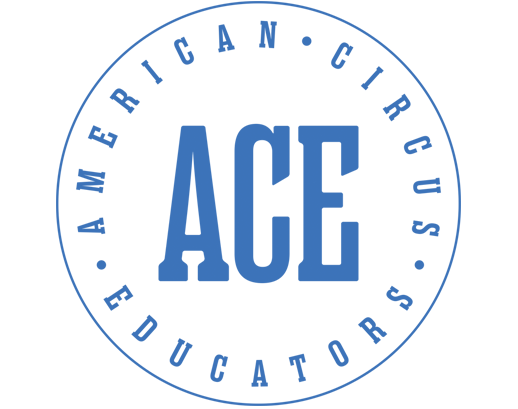National Study Shows Positive Impact of Circus Programming on Youth At Risk
Contact: Tara Jacob, Executive Director, American Youth Circus Organization
Phone: (607) 269-7644
Email: info@americanyouthcircus.org
[January 23 2018]
Youth in social circus programs across the US are making big leaps in the skills they need to lead productive lives, according to a recently completed study commissioned by the American Youth Circus Organization (AYCO) and conducted by the David P. Weikart Center for Youth Program Quality.
Take Melvin Diggs, graduate of the St Louis, MO program, Circus Harmony, who says: “Circus didn’t change my life. It saved my life.” Diggs grew up expecting to join a gang, deal drugs and face a life of violence. Instead, he found somewhere to belong, to be challenged and to excel. Today, he works professionally performing circus arts and is currently in Cirque du Soleil’s touring show Luzia.
Social Circus is the application of the art and culture of the circus to help address social issues such as social isolation, impact of trauma, violence in communities and lack of access to arts and cultural activity. Each Social Circus program in the study is a member of the AYCO Social Circus Network. Some, like Prescott Circus Theatre in Oakland, CA focus on elementary school aged children, while others, such as Trenton Circus Squad in Trenton, NJ work primarily with teens. Each program is carefully designed to meet the needs of participants, and seeks to improve the social and emotional skills that youth need to thrive as adults: knowledge and awareness of emotions; the ability to manage emotions in behavior; the ability to seek help and to help others; and the ability to set and work towards goals.
The Weikart Center conducted the study over nine months and eleven sites, with eight participating organizations. The study showed that youth in these social circus programs made progress in the development of social and emotional skills at the level of other exemplary youth development programs and well ahead of a nonselective group of after school youth programs.
Charles Smith, Chief Knowledge Officer at the David P Weikart Center for Youth Program Quality stated the following about the results, “It’s so refreshing to get unambiguous findings in relation to the group of programs in this study. That almost never happens! Our Center has been working for several years on establishing a benchmark for exemplary programs in building social and emotional skills and it’s particularly gratifying to have uncovered a set of programs that are generally performing at this high standard.”
The study showed that youth in these social circus programs made positive and substantial progress in the development of social and emotional skills. For example, the percentage of social circus youth struggling to demonstrate self-regulatory skills improved from 53% to only 19% by the end of the program. These impacts were at the level of a comparison group of eight exemplary youth development programs and well ahead of impacts found in a non-selective comparison group of over 350 other after-school youth programs previously studied by the Weikart Center.
The lead funders of the study were the James E. and Diane W. Burke Foundation, and Cirque du Soleil.
“The study bears out what practitioners have known for a long time” says Amy Cohen, Executive Director of AYCO, “When it comes to building social and emotional skills in youth, circus works!”
While some social circus graduates like Melvin go on to professional careers, that’s not the main aim. Social circus programs build a sense of empowerment, tenacity and confidence that helps youth find a positive path and overcome barriers in their lives.
“Social circus promotes creative youth and community development beyond what can be achieved through other sports and arts activities” explains Cohen.
The programs participating in the study were:
- Circus Harmony, St Louis, MO
- Contact Jessica Hentoff Tel: 314-436-7676, www.circusharmony.org
- Circus Smirkus Ringmaster Residencies, Greensboro, VT
- Contact Jennifer Carlo Tel: 802-533-7443, www.smirkus.org
- Fern Street Circus, San Diego, CA
- Contact John Highkin Tel: 619-320-2055, www.fernstreetcircus.com
- My Nose Turns Red, Cincinnati, OH
- Contact Steve Roenker Tel: 859-581-7100, www.mynoseturnsred.org
- Prescott Circus Theatre, Oakland, CA
- Contact David Hunt Tel: 510-967-0355, www.prescottcircus.org
- School of Acrobatics and New Circus Arts Social Circus Program, Seattle, WA
- Contact Amber Parker Tel: 206-652-4433, www.sancaseattle.org
- Trenton Circus Squad, Trenton, NJ
- Contact Zoe Brookes Tel: 203-804-1044, www.trentoncircussquad.org
- Wise Fool New Mexico, Santa Fe, NM
- Contact Oriana Lee Tel: 505-992-2588, www.wisefoolnewmexico.org
The David P. Weikart Center for Youth Program Quality empowers education and human service leaders to adapt, implement and bring to scale best-in-class, research-validated quality improvement systems to advance child and youth development. The Center is a division for the Forum for Youth Investment. 734-961-6900 www.cypq.org.
The American Youth Circus Organization (AYCO) promotes the participation of youth in circus arts www.americanyouthcircus.org . Founded in 1998, AYCO supplies the organizing force for youth circus in the USA, and for circus educators through its American Circus Educators branch www.americancircuseducators.org.
Full Press Kit is available here.
The full study is available here.
A more detailed analysis of why circus works is available here.
###

